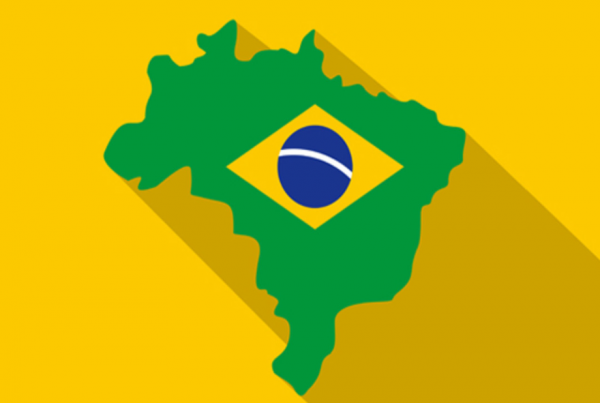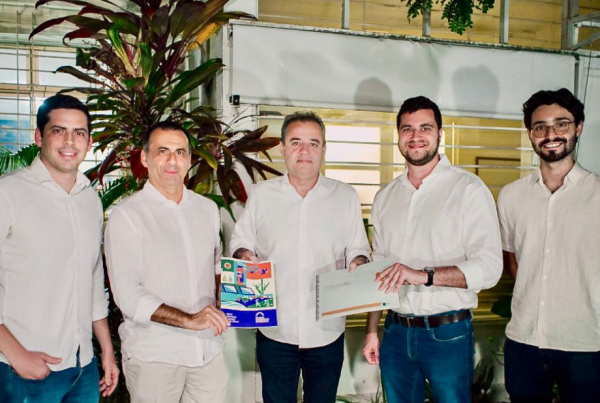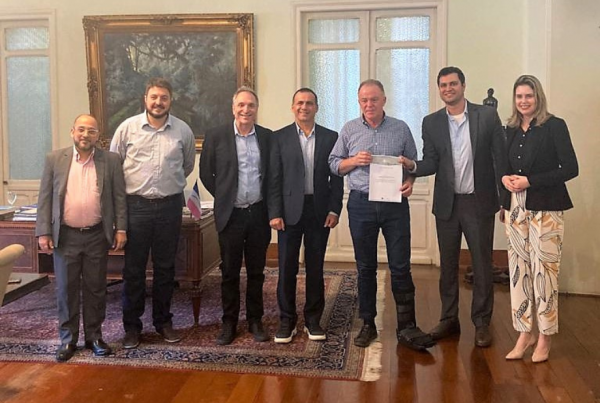The economic consequences of the pandemic will be dramatic throughout the world and particularly in Brazil. What to do? There is a clash between the military-sponsored vision of the Palácio do Planalto, the pro-Brazil one — a public works rag that has come to be compared to the New Deal — and that of Finance Minister Paulo Guedes — the lone one in a mask — fearing a neo-developmentalist/statist revival.
Guedes’ strategy of the classic austerity policy to restore confidence and attract domestic and, above all, international capital was already in a bad way. It went into outer space with the pandemic. The paradigm of strict deficit control has simply turned to juice. Central countries are betting on debt of 300% of GDP and a return to the kind of deficit treatment of the New Deal, WWII, and postwar days, where the Marshall Plan comes from.
Men of finance capital like Guedes are stunned by this situation and have no idea how to continue wielding their favorite tool, the scissors. They don’t realize how much the pandemic has exploded the entire paradigm of “financed” capitalism: extreme globalization, the dizzying movement of speculative capital, its relative disengagement from productive investment, and its ability to bring national governments to their knees.
There is certainly a revival of Lord Keynes, of the interventionist action of the state – in various ways, not all friendly to finance – and this occurs in countries governed by both the left and the right (currently the majority).
This does not automatically give the Pro-Brazil military a reason. Yes, Brazil will desperately need its state, including as an economic agent, but not of the old and outdated national-developmentalist strategy from Geisel to Dilma. Of the State in a new paradigm that can see where the country’s potential really lies and what kind of public and infrastructure investment will actually work, because we know all too well, also from Geisel to Dilma, that it can easily be disastrous.
There is a pathetic ingredient in this faith of Brazil that its future lies in oil and meat. Oil, regardless of the current downturn, is not going to last another 20 years with the global auto industry’s decision to electrify itself. Meat, on the other hand, I am sorry to tell the ruralists, will sooner than you think do without cattle and pasture. It is being manufactured synthetically with the same taste and cheapening exponentially. This will conquer the world, including China. Stand by.
Our potential lies in biotechnology, in the production of energy through biomass, in natural and economical reforestation, absorbing carbon on a scale never before seen in the world; in low-carbon agriculture and organic, quality food, for an increasingly demanding market; in adding value to our natural products; in clean wind and solar energy, with storage, intensive job generators. The State is not going to finance all this, but in the BNDES it has a leverage instrument, via guarantees to attract capital that is available throughout the world in search of sustainable, well-done, and socially advantageous projects.
Brazil has to enforce the decision, already foreseen in the Paris Agreement, of the economic value of less carbon. In a world where an immense loss of wealth has just occurred, a new source of wealth arises! One linked to the survival of humanity in the face of climate change.
Reducing and sequestering carbon from the atmosphere is the “new gold” that we need to learn to mine. This is exactly what the now defunct Amazon Fund was doing, with different terminology, billing the annual reduction of deforestation, easily convertible into less carbon. It is possible to do this on a macro scale and public investment, intelligently, to be a catalyst for private capital, national and international. For this, however, it is necessary to have a president with credibility capable of uniting Brazil. Certainly not that one…
https://alfredosirkis.blogspot.com/2020/05/a-economia-pos-corona-o-menos-carbono.html?m=1




